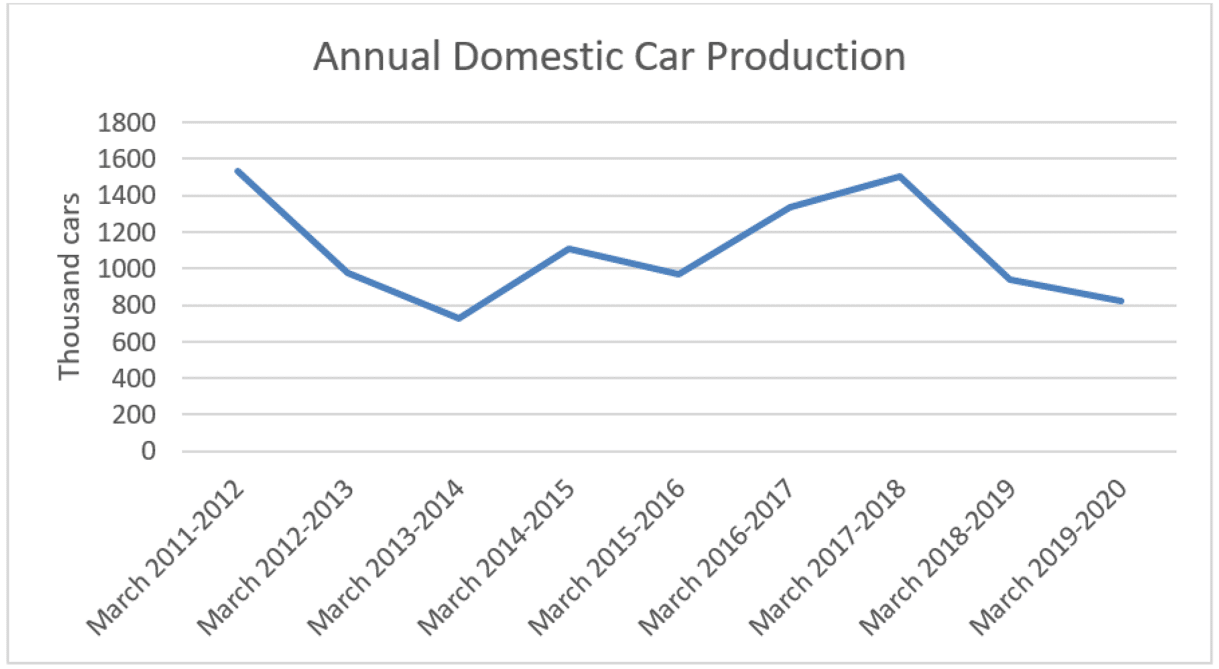October 30, 2020 | Policy Brief
U.S. Should Sanction Key Iranian Automobile Companies
October 30, 2020 | Policy Brief
U.S. Should Sanction Key Iranian Automobile Companies
Iranian Air Force commander Brigadier General Aziz Nasirzadeh announced earlier this month that the Air Force and the Iranian automobile manufacturer SAIPA would co-produce unmanned aerial vehicles (UAV) for the country’s military. This agreement illustrates the dependence of the Iranian military on the country’s top auto manufacturers, which also stabilize the regime by reducing the need for imported vehicles, whose purchase would consume scarce reserves of hard currency.
In August 2018, the United States reimposed sanctions on Iran’s automobile sector – part of a package of sanctions that Washington reenacted after it left the 2015 nuclear deal three months earlier. Iran’s automotive industry primarily serves domestic needs; it does not have significant markets outside Iran. This means the industry does not bring much hard currency into the country, yet by meeting domestic needs it removes the need to spend hard currency on imported vehicles.
Nonetheless, the industry heavily relies on foreign technology and parts to manufacture its products, especially its newer ones. Sanctions could block these acquisitions, forcing the regime to spend its reserves on imported vehicles.
Previously, Iran’s car production reached its peak in the 2011-2012 Iranian fiscal year (March to March), shortly after the Obama administration began to impose crippling sanctions on Iran. From that point on, production dropped as a result of Iran’s economic troubles, reaching an all-time low during the 2013-2014 fiscal year. Thanks to the 2015 nuclear deal, output returned to its previous peak in the 2017-2018 fiscal year. By 2019-2020, however, the industry halved its production, although output did not fall to its previous 2013-2014 low.
Despite its domestic production, Iran imported 470,000 vehicles between 2011 and 2018. Its imports increased in years when its domestic production decreased, showing the need to compensate with imports for lower domestic output.
As a result of the sanctions that Washington reimposed in August 2018, many international carmakers left Iran and put their investments in the country on hold. Chief among them have been Peugeot, Renault, and Mercedes Benz. Even Chinese carmakers have significantly reduced their presence in the country.
The sanctions have successfully reduced Iran’s production to a significant degree but could have a much greater impact. Washington should thus identify and designate entities and persons that re-export auto manufacturing parts to Iran.
Iran’s automotive sector is dominated by two companies: Iran Khodro and SAIPA, which produce more than 90 percent of cars in Iran. Washington has yet to sanction these two giants and their subsidiaries, despite their crucial role in a blacklisted sector.
Both companies have extensive ties to Iran’s defense industry and designated military entities. In December 2019, Iran’s Ministry of Defense and Armed Forces Logistics (MODAFL) signed a deal with SAIPA to produce car parts for the company. Seyyed Javad Soleimanisaid, SAIPA’s CEO, said, “With [the] Defense Ministry’s help, domestic substitutes for 35 key auto parts are to be produced in Iran to curb the industry’s reliance on the global supply chain.” That same month, Iran Khodro signed deals with eight MODAFL-affiliated companies. In March 2019, Treasury designated MODAFL under Executive Order 13224 for providing support to terrorist groups.
Washington should designate SAIPA and Iran Khodro for their cooperation with Iran’s defense industry. Both companies provide material support to an entity designated for terrorism and are the key players in Iran’s automotive sector, a designated industry. Blacklisting them would be another key step in Washington’s ongoing maximum pressure campaign.
Saeed Ghasseminejad is a senior Iran and financial economics advisor at the Foundation for Defense of Democracies (FDD), where he also contributes to FDD’s Center on Economic and Financial Power (CEFP) and Iran Program. For more analysis from Saeed, CEFP, and the Iran Program, please subscribe HERE. Follow Saeed on Twitter @SGhasseminejad. Follow FDD on Twitter @FDD and @FDD_CEFP and @FDD_Iran. FDD is a Washington, DC-based, nonpartisan research institute focusing on national security and foreign policy.
